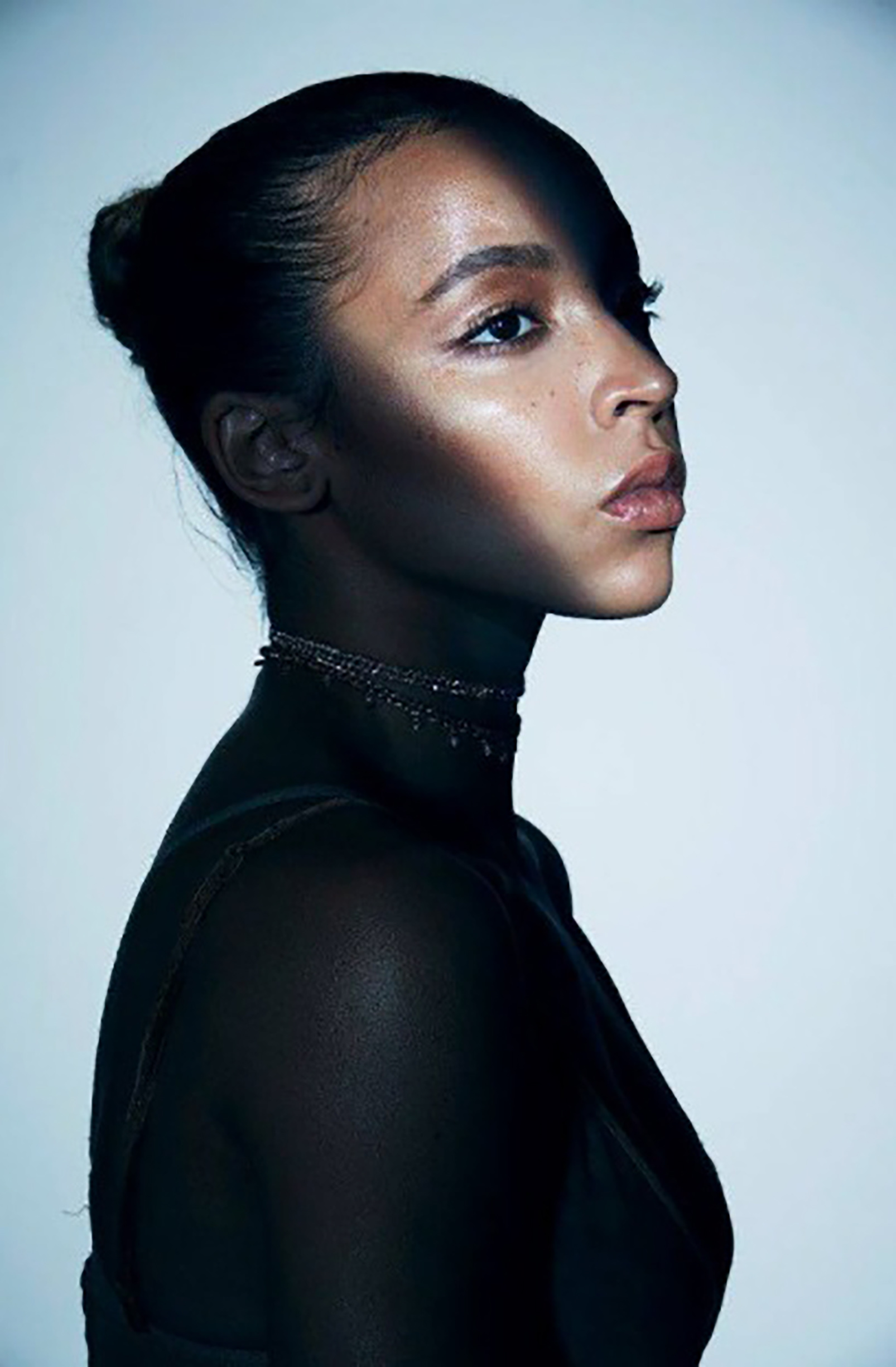
When Tinashe’s pants ripped as she was stretching before an invite-only February show in Brooklyn, there was no time to fix the split seam. “I ended up wearing the sweats I was wearing on the airplane,” she says, laughing. She went on to perform a high-octane, hour-long set to a small crowd of fans, dancing and singing to sinuous pop-R&B tunes like the single “No Drama,” taken from her new album, Joyride. No one blinked an eye at her choice of apparel; she sold the look. At 25, Tinashe is a pro at dealing with curveballs. She’s had to be. “There’s no Plan B,” she says.
Tinashe has been in the trenches as a working artist for a decade. She’s banking on Joyride (out April 13) to clarify her position as a full-package urban pop artist in the mold of Janet Jackson. She writes. She sings. She dances. She transcends genre. Yet despite her prescience and hard work, the limelight has so far remained frustratingly elusive.
Born Tinashe Jorgensen Kachingwe to college professors—her father is from Zimbabwe, and her mother hails from the Midwest—she started on the California audition circuit when she was just 6. By 15, she tested out of high school and joined a girl group called the Stunners. Tinashe never intended to be in a group, but the Stunners snagged a prime gig as tour openers for Justin Bieber, who was then a rising star. Perks included time spent learning the ropes of the recording studio; quickly, she signed a solo deal with RCA.
In 2014, her track “2 On” with Schoolboy Q, taken from her debut album, soundtracked dance floors, earned platinum status and had some suggesting that she could be the next Aaliyah. But Tinashe didn’t follow it up with more mainstream singles; instead, she released two vibey mixtapes of self-produced, futuristic R&B. Her label couldn’t figure out how to classify her music, and even her fans wanted her to be someone she wasn’t. “I don’t like being told what to do,” Tinashe says. “It’s easy for people to marginalize you—if they hear you do a certain type of song, they expect that from you every time. But that’s so boring!” In a market crowded with young female artists, the ultimate challenge is how to evolve as a voice without losing your fan base along the way.
After teasing an album release that never materialized in late 2016, Tinashe was left embarrassed. “They were looking at me as a failure,” she says of the public. Yet she also wasn’t ready to accept defeat. Until then, she had lived at her parents’ suburban Los Angeles home, writing and recording in her childhood bedroom. Finally, she was ready to strike out on her own.
So Tinashe rented a house in the Hollywood Hills, establishing a creative sanctuary and hangout spot for other artists and friends to make music. She hosted Taco Tuesdays, she went clubbing, she painted at an easel. In other words, she lived life outside of the intense focus that came with being a child star and music-industry stalwart—and she wrote about it candidly.
Out of that newfound freedom came Joyride, a slinky, triumphant album that is as self-assured as it is vulnerable. Tracks like “He Don’t Want It” conjure a late-night reverie, echoing with floating falsettos. In “Salt,” she drops into a lower register, letting her voice fill with a rich, bluesy strain of regret. And then there’s the light and infectious “Stuck With Me,” with Swedish electronic group Little Dragon. “I’m a train wreck, I’m a car crash,” she sings sweetly. “Get an ice pack for the weekend, ’cause you’re stuck with me.”
For Tinashe, Joyride is a statement of purpose. “I’m a fighter and a warrior and I’m here,” she says. “And it’s not an accident that I’m here.” Wardrobe malfunctions and all, she’s ready for the spotlight. “To me, it’s not a matter of if,” she says. “It’s a matter of when.”
More Must-Reads from TIME
- Donald Trump Is TIME's 2024 Person of the Year
- Why We Chose Trump as Person of the Year
- Is Intermittent Fasting Good or Bad for You?
- The 100 Must-Read Books of 2024
- The 20 Best Christmas TV Episodes
- Column: If Optimism Feels Ridiculous Now, Try Hope
- The Future of Climate Action Is Trade Policy
- Merle Bombardieri Is Helping People Make the Baby Decision
Write to Raisa Bruner at raisa.bruner@time.com